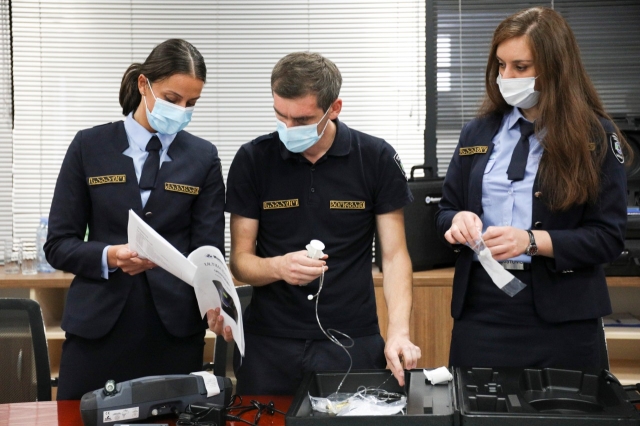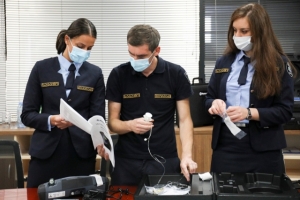Georgia Exceeds Targets in Effort to Protect Ozone Layer
On World Ozone Day, the United Nations Development Program (UNDP) joins hands with its longstanding partners, the Ministry of Environmental Protection and Agriculture and the Ministry of Finance, to celebrate Georgia’s achievements in phasing out ozone-depleting substances and promoting a greener lifestyle and sustainable production and consumption.
As part of UNDP’s wider program aimed at protecting the Ozone Layer, up-to-date equipment worth USD 41,000 was handed over to the Revenue Service of the Ministry of Finance and the Department of Environmental Supervision of the Ministry of Environmental Protection and Agriculture. New refrigerant identifiers will be used to monitor the import and use of harmful substances, and new refrigerant recovery machines, refillable refrigerant cylinders, portable refrigerant leak detectors and other devices will assist refrigeration and air conditioning technicians in maintaining home appliances and industrial equipment.
To raise public awareness about the need to protect the ozone layer, UNDP and MEPA’s Environmental Information and Education Center organized an online discussion with high-school Eco-Leaders, a competitively selected group who work to promote a green lifestyle and environmental activism.
“The resounding success of the global effort to protect and restore the Ozone Layer shows what the world can achieve when leaders listen to scientists and take action before it is too late,” said UNDP Head Louisa Vinton. “The threats posed by climate change are far more potent, yet we are sadly lacking the global resolve we need to protect the planet. On World Ozone Day we warn that time is running out.”
UNDP has been assisting Georgia for over a decade in protecting the Ozone Layer and fulfilling its national commitments under the Vienna Convention and the Montreal Protocol. Georgia has successfully reduced its use of ozone-depleting substances (ODSs) from 5.21 tons in 2013 to 2.4 tons on 1 January 2020, bettering the agreed 2.97 tons target. The country is on course to phase out ODSs completely by 2030.
UNDP helped Georgia amend legislation to phase out ODSs and monitor and control their import, export, re-export, transit and use. Currently, support is being provided to establish and equip recycling facilities and service centers in refrigeration and air conditioning, introduce an electronic monitoring system, and train refrigeration and air conditioning technicians, customs officers and environmental inspectors.
The Vienna Convention and the Montreal Protocol are the first UN treaties to achieve universal ratification and are among the most successful international environmental treaties in history. Without them, the Ozone Layer was on course to collapse completely by 2050 with disastrous consequences. The latest scientific assessments show that parts of the Ozone Layer have recovered at a rate of 1-3 percent per decade since 2000. Northern Hemisphere and mid-latitude ozone will heal completely by the 2030s. The Southern Hemisphere will follow in the 2050s and Polar regions by 2060.
Image: Leli Blagonravova/UNDP












